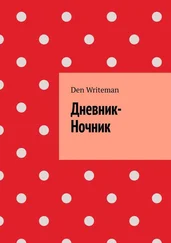When I was working at the Rutland Mill in Shaw, Saturdays were once again bright and pristine; I no longer had to work till nine o’clock as I had done in the fruit trade. I was older, possibly wiser, although I wouldn’t put money on it, and certainly a few shillings more affluent, and I had two stalwart mates. As well as Bobby Hall, Jack Cleaver was one of my pals. A strange lad, usually the target of our heartless humour, he wore glasses, steel-rimmed and held together by a strip of sticking plaster, and he had light straight hair which he pressed with open fingers to create waves. If the world was not exactly our oyster it was most definitely our winkle. Our main Saturday night attraction was the Gaumont cinema at the end of Union Street. As for the film, the question we first asked ourselves was, ‘Is it a talkie?’ and the second, ‘Is it in colour?’ This didn’t bother us a bit: it was Saturday night, hey, lads, hey and the devil take the hindmost.
The Gaumont cinema was a large, luxurious emporium showing the latest films and up-to-date news, not forgetting Arthur Pules at the mighty Wurlitzer. For many Oldhamers the perfect panacea for the end of a stressful working week was a Saturday night at the pictures. Just relaxing into the armchair-like seats was an experience to savour. Uniformed usherettes busily showed patrons to their seats; one usherette stood against the orchestra pit, facing the audience with a smile as she sold crisps, peanuts, chocolates and soft drinks from a tray strapped round her shoulders; another usherette patrolled the aisles, selling various brands of cigarettes and matches from a similar tray. There was a general feeling of content in the audience, excitement slowly rising under a subdued babble of conversation. The audience were the same people who had gone off to work during the week in overalls, dustcoats, ragged clothing and slightly better garb for office workers, but at the Gaumont cinema they had all, without exception, dressed up for the occasion. All the men wore collars and ties and the ladies decent frocks and in many cases hats as well. What a turn around from my dear old flea-pit Imperial days; no running up and down the aisles chasing each other and certainly no whistling, booing or throwing orange peel at the screen during the sloppy kissing bits. In all fairness, though, I must add that that was only at the Saturday morning shows and we were children enjoying a few moments not under supervision or parental guidance. In fact when I was old enough to go to the Imperial for the evening films the audience even then dressed up and enjoyed the films in an adult fashion.
Back to the sublime at the Gaumont cinema; as the lights went down, so did the level of conversation. A spotlight hit the centre of the orchestra pit and slowly, like Aphrodite rising from the waves, the balding head of Arthur Pules would appear as he played his signature tune on the mighty Wurlitzer. He was a portly figure in immaculate white tie and tails, hands fluttering over the keys and shiny black pumps dancing over the pedals as he rose into full view, head swivelling from side to side, smiling and nodding to acknowledge the applause; but for all his splendid sartorial elegance, having his back to the audience was unfortunate as the relentless spotlight picked out the shape of his corsets. Regular patrons awaited this moment with glee, judging by the sniggers and pointing fingers. We were no exception: having all this pomp and circumstance brought down by the shape of a pair of common corsets on a man was always a good start to the evening’s entertainment.
At this point the words of a popular melody would flash on to the screen—for instance, the ‘in’ song of the day, ‘It Happened on the Beach at Bali Bali’—and, after a frilly arpeggio to give some of the audience time to put their glasses on, a little ball of light settled on the first word of the song. In this case the first word was ‘It’; then it bounced on to ‘Happened’; then it made three quick hops over ‘on the Beach at’; and then it slowed down for ‘Bali Bali’. The women sang with gusto and the men just smiled and nodded.
Happily this musical interlude didn’t last too long. Arthur Pules, the organist, was lured back into his pit of darkness and the curtains opened on the big wide screen. The films at the Gaumont were a great improvement on the grainy pictures at the Imperial, and so they should have been: after all, the film industry had made great strides in the eight years since John and I had sat in the pennies, dry mouthed as the shadow moved across the wall to clobber one of the unsuspecting actors.
After two hours of heavy sighs and wet eyes ‘The End’ appeared on the screen and the lights in the auditorium came up, bringing us all to our feet as the drum roll eased into the National Anthem…no talking, no fidgeting, simply a mark of respect for our King and Queen.
From the cinema we made our way eagerly to the next port of call, the chippie at the top of Coldhurst Street, for our customary fish and chips sprinkled liberally with salt and vinegar, and salivated to the top of Belmont Street, where Bobby Hall lived. Conversation was on hold as we stood in a circle, the steam of the hot fish and chips mingling with our clouds of breath on the cold night air. Finally with sighs of satisfaction we saw Bobby to his door, and then Jack and I made tracks through the darkness to 36 Leslie Street.
Sunday evening was just as interesting. Our little gang met as usual and made our way down to Union Street, where hordes of people strolled down one side of the street to the end, crossed over the road and walked up the opposite side. It was habitual, the Sunday night paseo. Chatting and larking about, we joined the parade, just a few young blokes without a cogent thought between them, but this was not so—we were all of the same mind: GIRLS, GIRLS, GIRLS! We were growing up; it was the April of our lives. Should we come upon a linkage of girls we immediately locked on behind them, a decent space between us lads and our quarry. The girls threw covert glances over their shoulders and for our part we pretended to be oblivious to them, Bob and I laughing at nothing, and Jack staring ahead with what he perceived to be a steely glint, which didn’t quite work because his eyes were slightly crossed to start with. And another weekend hit the dust.
The offices of the Rutland Mill were palatial, with high ceilings in the boardroom and the general office; these were separated by a washroom, which had two gleaming taps above the basin and at the far end a toilet. All the office doors were either mahogany or rosewood, with shiny cut-glass door knobs; the windows were long and curtained, the bottom half of frosted glass so that the workers would be unable to look in on their betters, and more importantly, we wouldn’t have to look at them. In the first few weeks I felt embarrassed by the cheapness of my suit—Vernon had always been taller than me; but I did polish my shoes so that at least I could walk about the office with more confidence. Filling most of the space were two long desks. On one desk was a girl at one end and me at the other, and at the opposite side an older man facing me and a woman facing the girl, both more important than us; on the second desk a clerk even more important and facing him the big panjandrum, the boss man of us all, the secretary Edmund Taylor. From where he sat we were all within the orbit of his baleful gaze. As he looked at us over his glasses, we doubled our work rate. He never smiled and I surmised that he was either unhappy at home or nursing a grievance that he was grossly underpaid.
My duties were not too taxing. Most of my time was spent entering crate numbers of cops into an enormous ledger. The sheer size of this book gave me a sense of importance. Another duty of mine every week was to take the wages in a huge tray up to the mule room, where the big and little piecers queued for their hard-earned pittance. That was the only occasion I had to go into the mill, and for the first time my heart went out to my father, who was a big piecer at the Standard Mill in Rochdale. The treadwheel in old prisons would have been preferable to a few days in the mule room, where workers, barefoot on the oily, uneven floor, continuously walked up and down between the in-and-out movement of the mules piecing up cotton strands that broke with monotonous regularity; the heat was stultifying and the noise horrendous. Another regular duty of mine was to top up all the inkwells and distribute new blotting paper to the other members of staff.
Читать дальше












